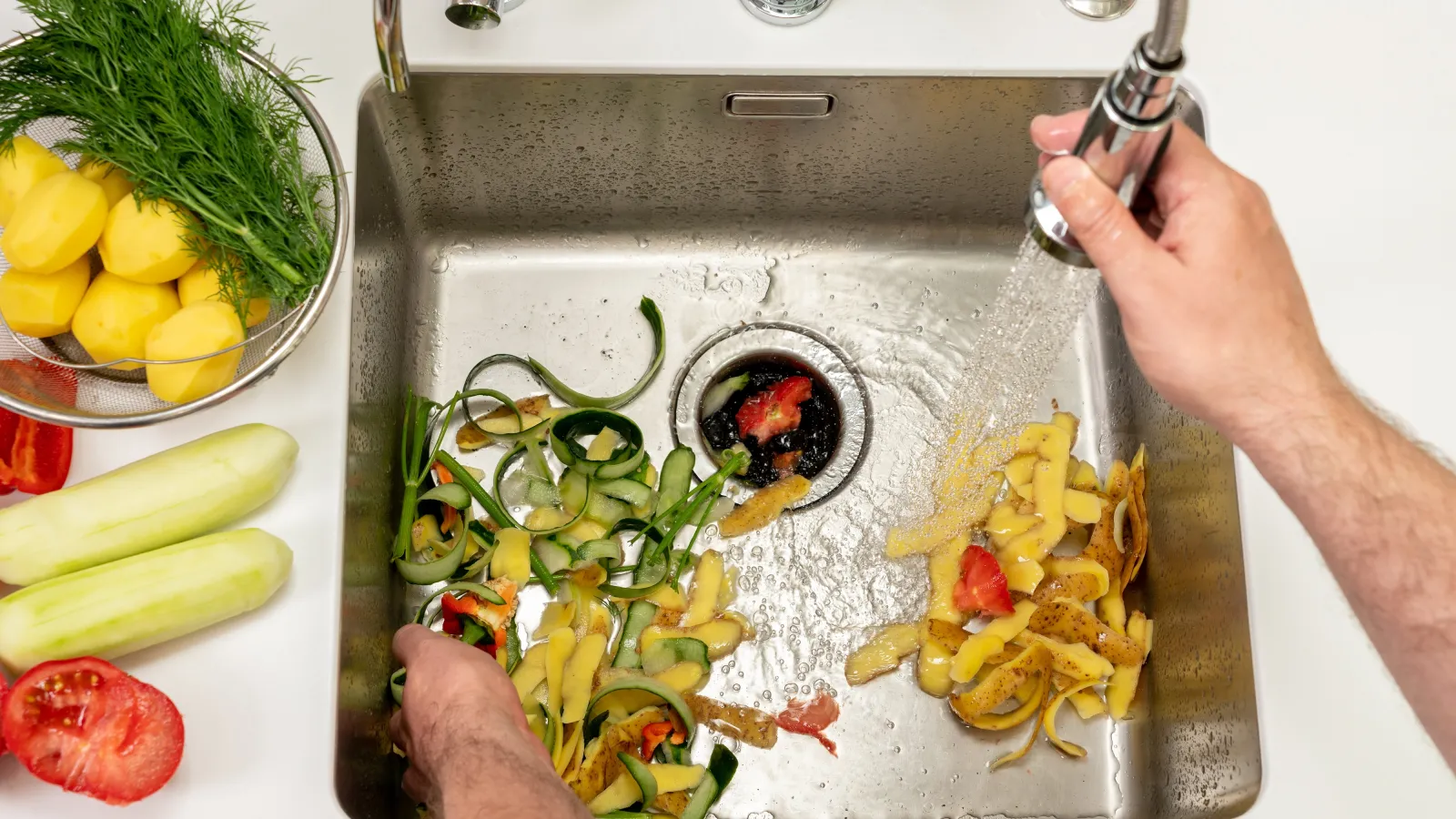As plumbers who deal primarily with sewer and drain problems, we see a lot of sewer line blockages.
In some cases, the problem is outside of the homeowner's control. Collapsed pipes and tree root intrusion fall into this category.
However, we're often tasked with clearing sewer pipes that are clogged by… stuff. Sometimes, it's food scraps. Other times, it's wads of synthetic trash.
Most of the time, it's a combination of both.
To avoid the hassle, inconvenience, and noxious odors involved with having a clogged sewer pipe, there are lots of things we recommend not washing down the drain or flushing down your toilet. Here are the six biggest offenders.
1. Cooking grease
A little cooking oil is bound to go down the drain with your dishwater, and that's fine. We're not concerned with pans that were lightly oiled. What does cause problems is large amounts of grease.
Examples include bacon fat, ground beef fat, and fry oil.
Rule of thumb: If there's enough oil to slosh around even a little bit, it's too much for your pipes.
Why can't you pour oil down your drain? Because as soon as the warm grease hits your cold sewer line (remember, these pipes are underground-they're cool to the touch), it hardens. Over time, it will harden enough to block the pipes completely.
Bits of food and other debris can also stick to the hardened grease, accelerating the formation of a blockage.
Alternative solution: Recycle cooking oil if your community has a program for it. Otherwise, pour it into a container and throw it in the trash.
2. Flushable wipes
We know the label says the wipes are flushable. The label is wrong.
Ok, you technically can flush them. But if you keep doing it, you're going to have a sewer line blockage.
These wipes bunch up inside of sewer pipes and mix with oils and foot remnants to form giant masses called fatbergs.
That's right. Fatbergs. Google it if you don't believe us. Trigger warning: it's as gross as it sounds.
We can usually obliterate these things via hydro jetting, but it's better not to create one in the first place.
Alternative solution: Just use toilet paper or put your "flushable" wipes in the trash.
3. Eggshells
There's a long-standing myth that eggshells can sharpen garbage disposal blades. Besides being completely untrue-how, pray tell, do eggshells sharpen metal?-this myth does nothing more than keep plumbers busy.
And as much as we like being busy, we'd rather you not need us at all!
The truth is that eggshells can clump together and/or stick to the insides of your sewer pipes, facilitating a blockage. They shouldn't ever go down your garbage disposal or drain.
Alternative solution: Compost your eggshells or throw them away.
4. Coffee grounds
Lots of people wash coffee grounds down the drain. If you have a garbage disposal, you may have heard that coffee grounds can cover unpleasant odors that might otherwise waft from within it.
Unlike the eggshell thing, this is not mythology! Coffee grounds can mask nasty odors from your drain or garbage disposal… assuming you like the smell of coffee.
However, coffee grounds also can, and will, block your sewer pipe. The grounds tend to clump together, forming a mass that prevents the flow of wastewater. Over time, other things stick to the clump and form a big nasty sewer line clog.
Alternative solution: Compost your coffee grounds or throw them in the garbage. They'll make your trash can smell better, too.
5. Large food remnants
Another name for this category might be "garbage disposal misuse."
It seems lots of people think that garbage disposals are magical devices that enable us to send virtually any and all kinds of food down drains. While garbage disposals are good for chopping very small bits of soft food scraps into even smaller granules that can safely travel through your sewer pipes, that's where their utility ends.
They're no good for potato skins, fruit peels, or other large bits of food.
Keep sending stuff like this down the garbage disposal, and a blockage you will have!
Alternative solution: Place large food remnants in compost as appropriate or, if you're not the composting type, feel free to trash them.
6. Anything that isn't edible
Toilet paper is the exception here.
Other than that, flushing or washing anything that isn't edible (or anything that wasn't edible at some point) down the drain will increase your risk of a sewer line blockage.
Things we see often include feminine hygiene products, cotton balls, paper towels, and wads of hair.
Flushable wipes also live in this category, but they cause so many problems that we gave them their own section.
These items clump together with eggshells, coffee grounds, cooking grease, and potato skins to form large clogs in sewer lines. Basically, if you wouldn't eat it, don't put it down the drain or flush it.
Alternative solution: Throw this stuff in the trash.
Did you flush something you wish you hadn't?
Or did you pour a bunch of grease down the drain?
It's ok. Really. We've all done it at some point. But if you've sent any of the above items down your drain and are experiencing slow-draining sinks or multiple drain clogs, you might have a sewer line blockage.
PV Heating, Cooling & Plumbing can help! If you live in Metro Atlanta and are dealing with troublesome clogs, our team can perform a sewer camera inspection to determine exactly what is causing the problem-and where the blockage is.
Then we'll provide the best possible, longest lasting fix for your home's plumbing system. The way we see it, you deserve not to have this happen again!
Give us a call at (404) 798-9672 or request service online today!





